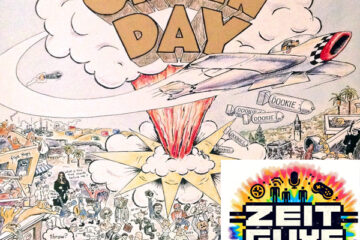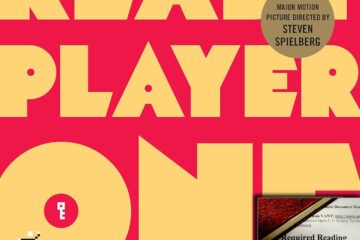Red Jacket Defends Native American Religion
Red Jacket vs. Missionaries by Thea Sargent
The occasion for this speech is Christian Missionaries trying to “educate” the Native Americans on Christianity. Red Jacket defends his dignity, beliefs, and tribe within this document. In the opening paragraph Red Jacket thanks, the Great Spirit “and him only” for the ability to meet with the Christian missionaries. Red Jacket tells the white men that he will not allow them to interfere with his tribe’s religion without blatantly telling him. By acknowledging the Great Spirit as the sole divine being Red Jacket explains to the missionaries that their attempts are useless.
In the fourth paragraph, Red Jacket compares the good, peaceful forefather of the Iroquois Confederacy to the evil, corrupted Englishmen. Where the Great Spirit gives the Native American Indians everything they need, the Englishmen seem too never have enough. He describes how before the “white men” came to this “island” there was peace and prosperity. Once the English landed, everything descended into Hell. Red Jacket subtly exposes that the English God is not a good influence compared to the Great Spirit. Red Jacket continues to show the missionaries that they have wronged the Native American Indians even though his people show nothing except hospitality. When the English men landed in America the tribes “gave them corn and meat” in an attempt of friendship; however, the settlers fed them “poison”. This reference to poison is a metaphor because the colonists did not literally feed them poison. On the contrary, the white men tainted the fragile friendship with toxicity and evil by attacking the Indians and forcing religion on them.
In the fifth paragraph, Red Jacket states that his tribe had no place “to lay their blankets” explaining to the missionaries that many Amerindians died from the constant war over lands. After continuous battles for land, slaughtering of natives, stealing of homeland, and forcing religion extensive numbers of Amerindians died.
Throughout the defense speech, Red Jacket refers to the white missionaries as “brother” repetitively. He repeats this word consistently to form a connection with the other people. Being brothers would mean that they would mutually love and acknowledge each other’s differences. Red Jacket knows that the white men recline in a more powerful seat than he; therefore, he may as well be saying this word to show respect.
Red Jacket and The Missionaries by Brooke Thomas
Red Jacket was a chief and speaker born in eastern New York. In the early 1800’s, a group of Boston missionaries asked Red Jacket if they could come into Red Jacket’s territory and preach the word of god, in hopes of converting the Indigenous people to Christianity. Red Jacket, using his oratrating skills, was able to communicate with this group of missionaries and express to them that him and his people were not interested in converting religions.
During his speech, Red Jacket repeats the word “brother” and “friend” at the beginning of almost every paragraph. Many speculate that he did this to come off as more personable. Saying “brother” builds somewhat of a connection with the person one is talking to. It puts them on the same level, instead of saying “sir”, which exemplifies a hierarchy.
Red Jacket tries to explain to the missionaries that life was peaceful before the settlers came over. He explains that “there was a time when our forefathers owned this great land. Their seats extended from the rising to the setting sun”(Red Jacket). He is, of course, explaining how the indigenous people rightfully owned their land before the British forcefully kicked them out and took it over. He describes the day that the settlers showed up as an “evil day”(Red Jacket).
Red Jacket uses logos and pathos throughout the entirety of the speech. He uses logos to provide and missionaries with hard evidence and facts that they simply cannot deny.On the flip side, Red Jacket utilizes pathos to sort of pull on their heartstrings a little bit. He wants the Christian missionaries to put themselves in the shoes of Indigenous natives, which will, in a way, give them a taste of their own medicine.
“The Great Spirit Has Made Us All” Speech Analysis by Phoebe Schmitt
Relationships between the Amerindians and American settlers were never peaceful. A plethora of wars, broken treaties, and land seizures plagued their connections. Americans strongly believed in the idea of Manifest Destiny and white supremacy over the Amerindians. This led to the shrinking of Amerindian land and the “modernization” of their culture. During the Seven Years’ War, the Amerindians fought against the American colonies in the late 1750s. In many of the American-Native conflicts, Amerindians were hired to fight against other tribe for the United States. Americans impeded on their culture and religion, forcing conversions to Christianity and Westernization.
Red Jacket’s speech was a response to a visit from American Christian missionaries hoping to convert his tribe. Red Jacket was a link between the Americans and his tribe. Although Red Jacket wanted to be clear with his message, he used double consciousness to avoid major conflict. Double consciousness is the sense of looking at oneself in the eyes of others to distort their true meaning. In this case, Red Jacket had to keep the peace between the people hindering on his land. For instance, Red Jacket says, “…for all these favors we thank the Great Spirit, and him only,” to tell his audience that their efforts for conversion were useless. He will go on to continue to believe in the Great Spirit, as well as his people. However, he does this in a way that it is not outright denial. He again references the Great Spirit at the end when he wishes the missionaries farewell, saying, “As we are going to part, we will come and take you by the hand, and hope the Great Spirit will protect you on your journey, and return you safe to your friends.” He ends on this line to ratify his introductory statements and diplomatically denying the missionaries.
Red Jacket also uses rhetoric to strengthen his point and make the missionaries purposefully awkward. He makes multiple gestures to keep his audience listening, alluding that the missionaries were clearly uncomfortable with the obvious truth. Red Jacket uses rhetorical questions such as “Brother, you say there is but one way to worship and serve the Great Spirit; if there is but one religion, why do you white people differ so much about it? Why not all agree, as you can all read the book?” and “We only know what you tell us about it. How shall we know when to believe, being so often deceived by the white people?” to reveal weaknesses in the missionaries’ arguments. He questions why Amerindians should trust their Christian religion and their morals if not all Christians agree on it. He wonders why he should trust white people if they often cheat his people, alluding to the constant breaking of treaties and agreements. He refers to his audience as “Brothers” sarcastically, referring to what the settlers called the Amerindians before they were played out of their land and resources. He often makes points that the Amerindians generally tried to keep the peace and it was the white people who stirred the conflict.
“The Great Spirit Has Made Us All” Critical Analysis by Able Gebru
In 1805, an Indian speech was delivered before a Gentlemen Missionary from Massachusetts, by an Indian Chief. The Indian people were called Red Jacket by the white people. Missionary priests are trying to convert the Indian people to Christianity. All the Indian people want is peace. In the speech, Chief uses a lot of repetition. Chief uses brother a lot to try to connect with the missionaries. Chief and the Indians explain that there was a time when their forefathers owned their great island. They explain the island was for them. Everything was going fine until an evil day came upon them. The Red Jacket said the forefathers of the missionaries came to their island and made friends. They said they fled their country because of wicked men, and they came here to enjoy their religion. The Indian people felt pity for them and gave them corn and meat, while they gave them poison in return.
In the fifth paragraph of the Speech, the Red Jacket shows pathos. The Indian people were being played and “[Their] eyes were opened and [their] minds became uneasy. Wars took place. Indians were hired to fight against Indians, and many of [the Indian] people were destroyed” (Jacket 101). In these lines, you can hear the emotion in the speech. The missionaries
show up and ruin the Indian people in many ways. The Indian people are told the missionaries were sent to instruct them to worship the Great Spirit and if they do not they will be unhappy hereafter. The missionaries are referring to hell. The Red Jacket tries to relate by explaining that their religion “Was given to [their] forefathers, and has been handed down from father to son. We also have a religion, which was given to our forefathers, and has been handed down to us their children” (Jacket 102). The Red Jacket tries to explain how they are just like them and that their religion was passed down as well. At the end of the speech, the missionary did not shake them by the hand and believed there was no fellowship between the religion of God and the works of the devil.
“The Great Spirit Has Made Us All” Kiley McKenna
In 1805 Red Jacket, a Native American Chief, conveys a brilliant, double consciousness speech to stand up to the Catholic missionaries who keep trying to persuade them into joining the Catholic religion. In the opening paragraph, Red Jacket starts with “thank(ing) the Great Spirit, and HIM only.” Red Jacket emphasizes his spirit only to let the missionaries know they believe in their own religion and wish not to partake in theirs. In the fourth paragraph, he alludes to the Great Spirit making this land for the “use of the Indians” and how beautiful and bountiful he made it out of the love for his red children. In this paragraph, there is a major turning point when the English settlers had made it to the Native’s land.
“An evil day has come upon us” Red Jacket describes the day the English men had taken their land and stole they bountiful gifts of the Great Spirit. Although the English men abruptly upturned their world, the Natives came with open arms and “gave them corn and meat; (but) they gave (them) poison in return.” As helpful as the Natives were, the settlers gifted them with alcohol which altered their ability to think and ultimately their common sense. While still hopeful, the Natives chose to trust the settlers as they called them brothers and took them as friends. The settlers then increased their population greatly and started to want more land. This caused wars to break out and Indians were hired to fight amongst each other. Along with wars, the English brought the so-called poison which was alcohol. Red Jacket describes this poison as “strong and powerful and has slain thousands.” Throughout his speech Red Jacket starts every strong leading point with brother. Brother carries a sense of disrespect and betrayal that the English men caused to the Indians. I believe he uses Brother to recreate the mistrust they experienced. Overall, Red Jacket does an incredible job of working his point across to the missionaries. He explains the dishonesty and ruthlessness the Indians have endured by the actions of the settlers.
Red Jacket by Chris Haertel
Red Jacket, also known as Sagoyewatha, was a chief of the Senecas and an ally of the British. He received the nickname “Red Jacket” because he frequently wore a red jacket given to him by his British Allies. After American won the war against the British Red Jacket became a critical mediator between the Americans and the Senecas.
This speech was given at a three day long conference to negotiate the settlement of Indian claims of the western reserve. The Indians had been accused of worshiping the devil, so to combat this in the opening paragraph Sagoyewatha used the word “only” to close the first paragraph as a way to show that the Indians do not worship the devil, but only God. Furthermore, the Indians wanted to also express the differences between them and the white settlers so everyone could see that they were not the enemies. Sagoyewatha decided to compare the two in his speech: He says that the forefathers were peaceful and followed God. Then he says the settlers came and asked for a small seat so they could enjoy their religion, but they were deceiving the Indians. They became hostile and had a lust for land which was not theirs. When the natives realized their intentions, wars broke out. They broke up tribes by hiring indians to fight indians, and they poisoned them with the strong liquor.
The white settlers want to convert the Indians to Christianity, but the indians refuse because they are loyal to their faith and also they see the disagreement the settlers have about their faith. Red Jacket expresses this when he says “We never quarrel about religion.” Him saying this is adding emphasis that they are all in agreement about their religion unlike the settlers trying to convert them to theirs.
While saying all of this Red Jacket keeps a calm and friendly attitude as he uses the word “Brother” repeatedly as a sign of respect and peace between the two groups of people.
Sagoyewatha wants no violence or bloodshed.A reason for this could be that he knows his people could not stand a chance against the settlers, but also he sees no need to quarrel with his “neighbors.”


